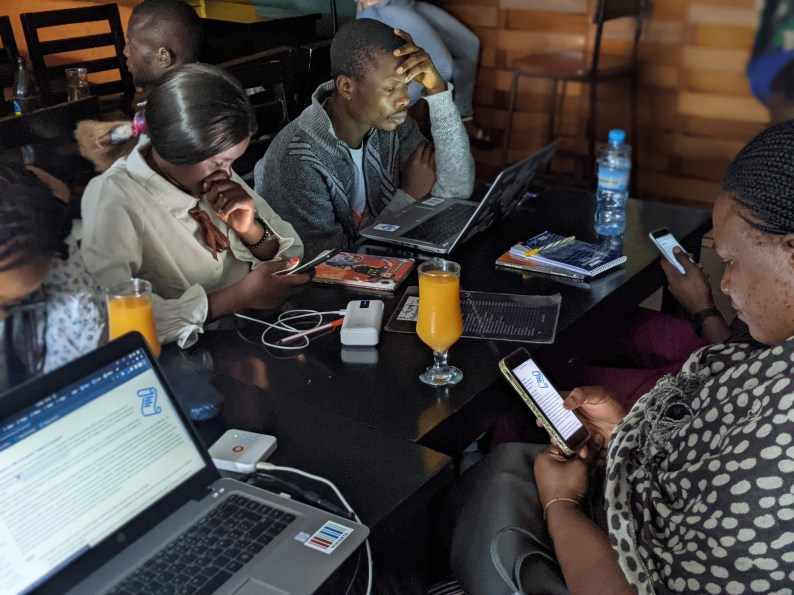The Movement Charter Drafting Committee (MCDC) held their first community feedback period on three chapters of the Movement Charter in late 2022: Preamble, Values & Principles, and Roles & Responsibilities. Communities across the Wikimedia Movement had the opportunity to share their feedback. This blog provides a summary of the community consultation period and outlines what to expect next in the Movement Charter drafting process.
The Movement Strategy & Governance team would like to thank everyone who took part in this feedback round! Thank you for your time, the effort you put into the Wiki projects, and the care you have for the present and the future of our communities.
First Community Consultation Period
The objective of community consultations is to ensure that all stakeholders – underrepresented and well-established communities, individual editors, etc. – have an opportunity to share their thoughts about the Movement Charter with the MCDC. For the Movement Charter to be successful, it is vital that there is shared ownership of the Charter within the Wikimedia movement. That is why the MCDC wants to create spaces for local communities to share their opinions about what works, what doesn’t; what’s missing; what’s needed for their local context to work towards shared goals; etc.
During this first community consultation, there were many channels for community members to share their feedback about the Movement Charter drafts: Meta talk pages, Movement Strategy Forum, anonymous survey, regional feedback conversations, local feedback conversations hosted by Movement Charter Ambassadors, and by email. This report summarized all the feedback during this period.
Below are three highlights of the community consultation period.
- The Movement Charter Ambassadors Program
- The “Ask Me Anything about Movement Charter” Sessions
- Regional Feedback Sessions
The Movement Charter Ambassadors Program

The Movement Charter Ambassadors Program was launched to ensure that individuals and groups from underrepresented communities could fully engage in the consultation. The goal was to raise awareness about the Movement Charter, answer questions that community members had, and create a space to share and discuss feedback in their own languages.
Seventeen grants from the communities of South Asia, Sub-Saharan Africa, Middle East and North Africa, East Southeast Asia and the Pacific, and Latin America and the Caribbean were funded. Between November 1 to December 31, 2022, Movement Charter Ambassadors conducted their conversations in their respective communities, some online and some offline. The feedback collected was included in the final report. The Movement Charter Ambassadors Program was successful in gathering diverse feedback, so it will be re-launched ahead of the next community consultations. Movement Charter Ambassadors will be publishing Diff blogs to share about their experience, with the hope that it will encourage other emerging communities to host local discussions around movement governance.
The “Ask Me Anything about Movement Charter” Sessions
The community consultation period was designed to include several components, including onboarding sessions for community members who might not be aware of the Movement Charter or the Movement Charter Drafting Committee. Three “Ask Me Anything about the Movement Charter” sessions were organized in different time zones. The sessions served as a space to learn about the Movement Charter as a whole, its goal and purpose, why it matters, and how it impacts their respective communities. Members of the MCDC participated in each of the sessions to answer questions. Almost 100 (99 to be exact) people (composed of community members, MCDC members, and support staff) attended the three sessions, which offered simultaneous interpretation into Mandarin, Japanese, French, Russian, Arabic, Spanish, and Brazilian Portuguese at specific sessions.
Notes from each session were shared on the Meta page. In addition, Georges Fodouop previewed the Values and Principles chapter in a video, and Manavpreet Kaur did the same for the Roles and Responsibilities chapter.
Regional Feedback Sessions
Following the “Ask Me Anything about the Movement Charter” onboarding sessions, the community consultation period continued with 8 online regional feedback sessions resulting in 249 attendees (composed of community members, MCDC members, and support staff) across 13 different languages.
During the sessions, participants were able to share their feedback and ask questions in language-specific breakout rooms supported by an MCDC member and MSG staff. In total, 20 breakout session conversations took place. There was also an EasyRetro Board to share written feedback in their preferred language. After each breakout room, participants presented the main points of discussion, which were recorded and are accessible on the Meta page along with detailed documentation of the conversation. As a direct outcome of both the “Ask me Anything about the Movement Charter” sessions and the regional feedback sessions, a Frequently Asked Questions list was published to address the returning questions about the Charter and the MCDC’s work.
What’s next?
Currently, the MCDC is reviewing the extensive feedback, which consists of 59 pages of comments from the consultations. The MCDC will consider changes to the drafts based on the feedback. Later on, the MCDC will also share the changes made based on the feedback, or responses to the feedback comments. Along with this, the MCDC formed three new drafting groups: Decision-making, Hubs, and the Global Council. In addition, the Roles & Responsibilities drafting group will remain active. There will be another community consultation in Q3 of the calendar year to feedback on these new drafts.
Finally, a special thanks to the Movement Charter Drafting Committees members for their courage and tireless work in making the Movement Charter a reality. We look forward to the next community consultation period!

Can you help us translate this article?
In order for this article to reach as many people as possible we would like your help. Can you translate this article to get the message out?
Start translation